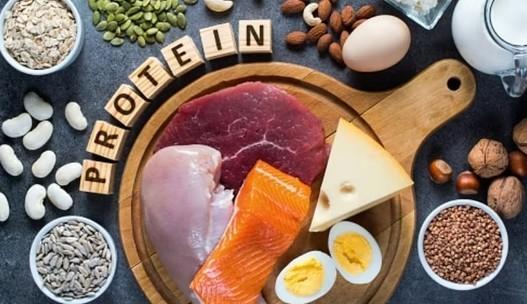
What Happens to the Body if One Completely Stops Having Protein?
Protein is an essential macronutrient that plays a vital role in various bodily functions. It is a fundamental component of every cell in the body and is necessary for the growth and repair of tissues. When we talk about protein, most of us think of it as a key component of a healthy diet, but what happens if someone completely eliminates protein from their diet? According to Meenu Balaji, chief nutritionist at Pragmatic Nutrition, Chennai, a person who completely stops having protein may experience short-term changes that can have long-term consequences.
Short-term Effects
In the initial stages, a person who stops consuming protein may experience some noticeable changes in their body. One of the most significant effects is the loss of muscle mass. Protein is essential for building and repairing muscles, and without it, the body’s muscle mass will start to decline. This can lead to muscle weakness, fatigue, and a loss of strength. Additionally, the metabolism of the body will slow down, which can lead to weight gain and a range of other health problems.
Long-term Consequences
If a person continues to eliminate protein from their diet, the long-term consequences can be severe and life-threatening. According to Balaji, a no-protein diet can cause damage to the skin and hair, leading to dryness, brittleness, and breakage. The immune system will also be severely affected, making the person more prone to illnesses and infections. Furthermore, the bone strength will deteriorate, leading to osteoporosis and an increased risk of fractures.
Other Complications
A no-protein diet can also lead to a range of other complications, including:
- Increased cravings: Without protein, the body will crave more carbohydrates and fats, leading to an unbalanced diet and a range of other health problems.
- Hair loss: Protein is essential for the growth and maintenance of hair, and a lack of protein can lead to hair loss and brittle hair.
- Skin problems: Protein is important for the maintenance of skin health, and a lack of protein can lead to skin problems such as acne, eczema, and psoriasis.
- Fatigue: Without protein, the body will lack the energy it needs to function properly, leading to fatigue and lethargy.
Why a No-Protein Diet is Life-Threatening
A no-protein diet is life-threatening because it can lead to a range of severe health problems that can have long-term consequences. According to Balaji, a no-protein diet can cause damage to major organs such as the kidneys, liver, and heart, leading to a range of serious health problems. Furthermore, a no-protein diet can also lead to a range of psychological problems, including depression, anxiety, and mood swings.
Conclusion
In conclusion, a person who completely eliminates protein from their diet may experience short-term changes such as loss of muscle mass and slower metabolism, but the long-term consequences can be severe and life-threatening. It is essential to include protein in your diet to maintain overall health and well-being. A balanced diet that includes a variety of protein-rich foods such as lean meats, fish, eggs, dairy products, and legumes can help to maintain muscle mass, support bone health, and boost the immune system.
Source:






